May 4, 2024 | 07:20 GMT +7
May 4, 2024 | 07:20 GMT +7
Hotline: 0913.378.918
May 4, 2024 | 07:20 GMT +7
Hotline: 0913.378.918
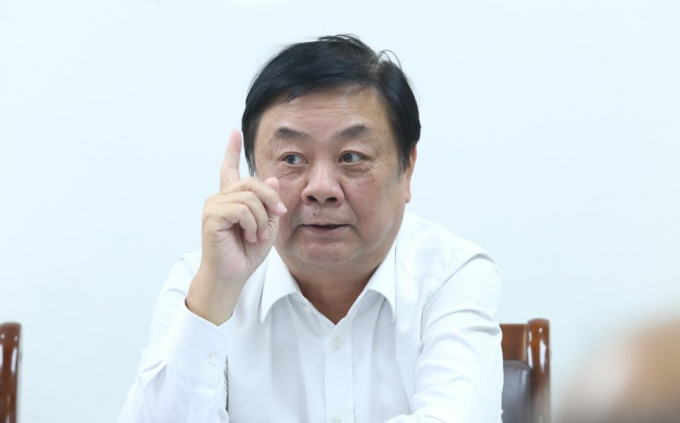
Deputy Minister of Agriculture and Rural Development Le Minh Hoan is seen at the meeting with the General Department of Water Resources on February 26. Photo: Minh Phuc.
The first story: During a field trip to Dong Thap Province, former Deputy Prime Minister Vuong Dinh Hue wanted to witness the remote water pump control system via mobile phone by Dr Nguyen Thanh My in Thap Muoi District who was, however, in Singapore at that time.
“So how can the Deputy Prime Minister see the remote control technology for the water pump?” the then Dong Thap Provincial Party Secretary Le Minh Hoan asked My via the telephone.
My laughed and answered: “It's very simple! I can control the system from anywhere in the world. The leaders of the Government will see water flowing into the fields 30 seconds later.”
And as he said, water started to flow into the field 30 seconds later, with the correct flow that had been previously installed by My.
My’s wife’s hometown is Kien Xuong district in Thai Binh province, so he also set up a similar model there. Everyday, he still controls the irrigation of the fields in Thai Binh Province from his house in Dong Thap Province via mobile phone.
The second story, still related to the President of My Lan Group, Nguyen Thanh My. He owns a 12ha land plot in Tra Vinh Province, growing mangoes, oranges, tangerines ...
2016 witnessed the most serious drought and salinity levels ever in the whole agricultural cultivation area of the Mekong delta.
In that year, My initiated an automatic river monitoring system in Tra Vinh Province.
At any time, when the water quality ensures the irrigation, the pump system will automatically pump into his 12ha garden with a preset capacity. When there is enough water flow, the pump will shut off by itself.
After telling the two aforementioned stories at the meeting with the General Department of Water Resources (MARD) on February 26, Deputy Minister Hoan said that the irrigation work in general should be put in the context of the industrial revolution 4.0.
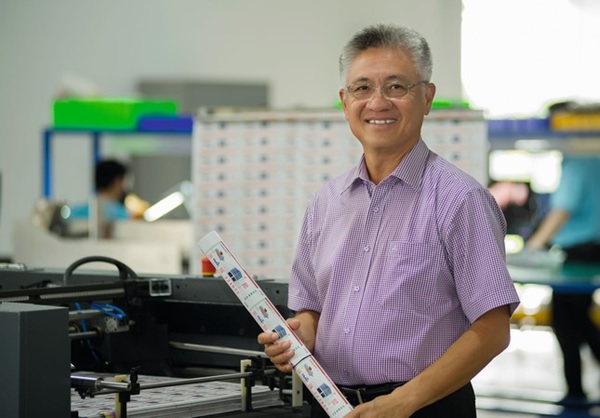
Dr. Nguyen Thanh My, the Chairman of My Lan Group, has successfully applied remote irrigation control technology. Photo: DDDN.
Although a real-time monitoring system with over 40 irrigation reservoirs has been built in Vietnam, there are still many issues to deal with to approach a smart irrigation serving smart agriculture, he said.
"My told me that everything has a solution. The problem is whether we will find a solution or we will accept the contemporary situation?” Hoan said and shared the third story.
“When I was working in Dong Thap Province, some Israeli experts came and conducted some projects there. I complained to them that some hydroelectric dams upstream of the Mekong River retained water in the dry season, so the water to the Mekong Delta was too scarce.
The Israeli experts then asked me: “"Do you think the water resources of the Mekong Delta or those in Israel are scarcer?".
They said that Israel only had the Jordan River and the rest of the country was desert.
Therefore, a drop of natural water of Israel must be used up to 3 times – the first time, it is drunk and then discharged; the second time, wastewater is deposited, filtered and watered for vegetables that are eaten raw; after that, the wastewater from the production of raw vegetables is used to water vegetables that needs cooking.”
According to Hoan, the mindset about irrigation should be changed. Resolution 120 on Sustainable Development of the Mekong Delta in response to climate change clearly defines the need to convert rice which is water-intensive to low-water crops.
Therefore, the General Department of Water Resources should coordinate with institutes and schools to study issues of water use for crops and animals in Vietnam.
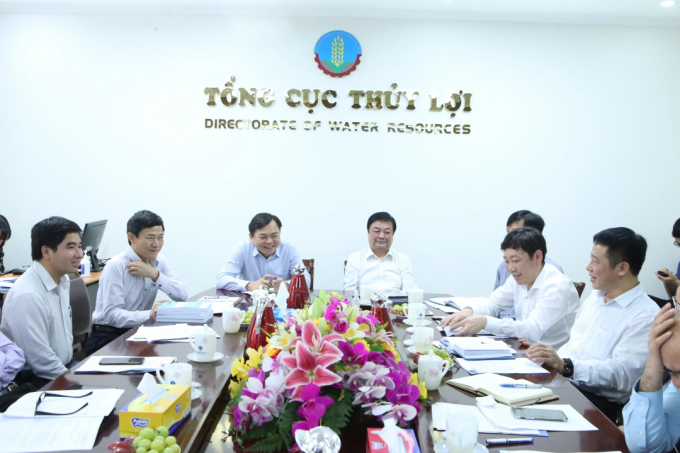
The two Deputy Ministers of Agriculture and Rural Development Le Minh Hoan and Nguyen Hoang Hiep and representatives of departments and departments of the Ministry of Agriculture and Rural Development are seen at the meeting on February 26. Photo: Minh Phuc.
In particular, Deputy Minister Le Minh Hoan stressed that there is a confusion between plans and strategies".
“We could not be dependent on the results of international cooperation to ensure that water is always maintained as desired. Therefore, it is necessary to switch to strategic thinking. Management is the strategic vision of how to maximize the goals but minimize costs”
In order to do that, it is necessary to have a thoroughly specific strategy in irrigation science and water science instead of dealing with seasonal salinity only.
“I have recently visited some irrigation projects, especially the Cai Lon - Cai Be system. The bridges, culverts, dams have already existed, but there should be a smooth operation from the highest level to the lowest level-the residential community, in order not to waste the human resources. We could do anything with the support of the Big Data platform,” the Deputy Minister said.
Translated by Mai Huong
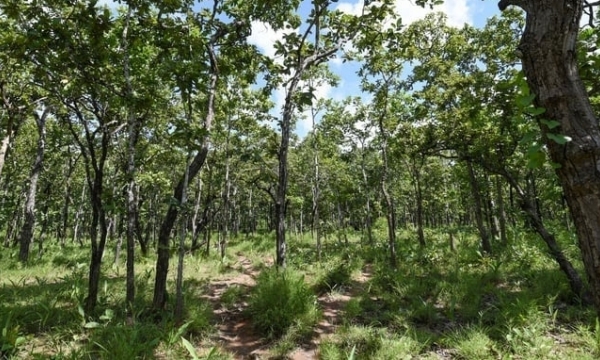
(VAN) The Ministry of Finance will coordinate with the Ministry of Natural Resources and Environment to finalize the project under Directive No. 13/CT-TTg issued by the Prime Minister on May 2nd.
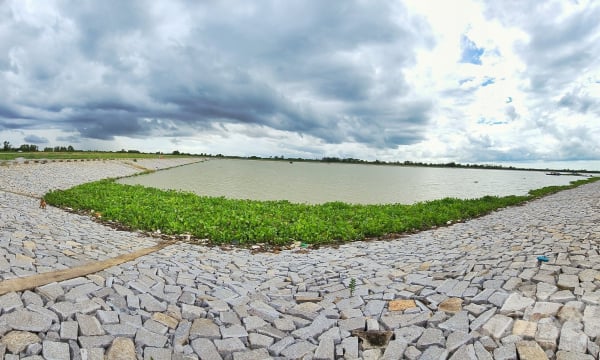
(VAN) Underground water – the huge freshwater reserves of Mekong Delta is facing the risks of salinity. The long-term solution to control and prevent the exploitation of underground water must be caculated.
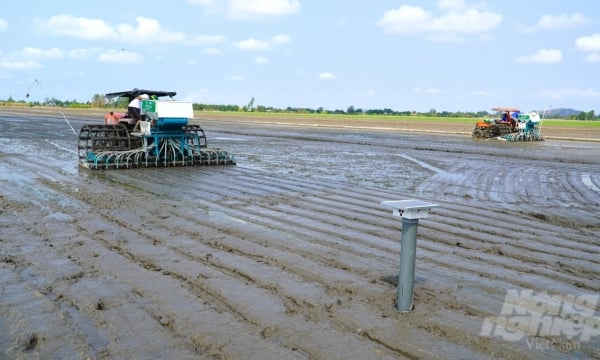
(VAN) In addition to technical support, farmers participating in the pilot model of the 1 million hectares of high-quality rice project will be supported with all materials and infrastructure.
/2024/05/03/2341-2-152131_770.jpg)
(VAN) 'Not every place can combine marine farming and tourism, but wherever we can do, we should do', Dr. Nguyen Chu Hoi said.
/2024/05/03/4925-2-074727_158.jpg)
(VAN) Across the country, there have been 15 forest fires occurring in the provinces of Son La, Dien Bien, Lai Chau, Quang Tri, Nghe An, Ca Mau, Kien Giang, An Giang, etc.
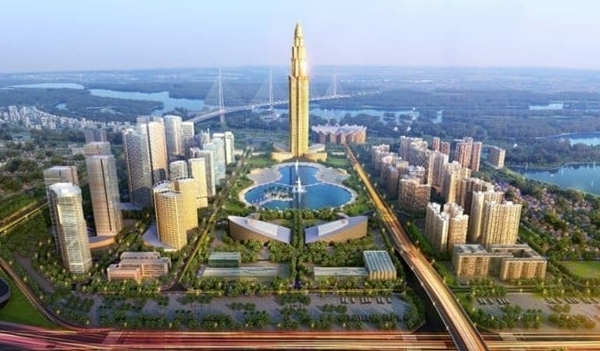
(VAN) Sumitomo Group and BRG Group is expected to develop North Hanoi Smart City, which is the first carbon-neutral urban area in Vietnam and the world.
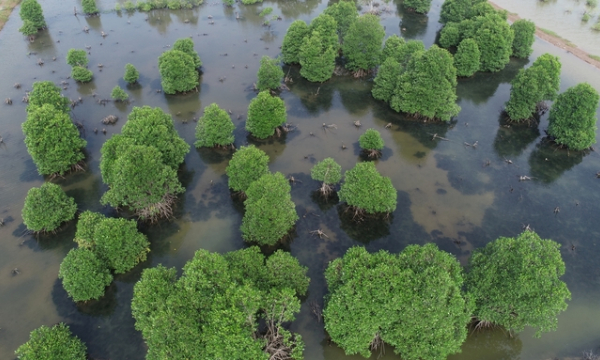
(VAN) Other markets, such as Japan, Korea, and the United States, will follow in the EU's footsteps, as this is an important trend in green transformation, carbon reduction, and the pursuit of sustainable development.